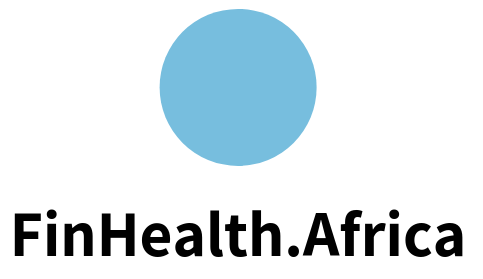- The African Financial Inclusion Network
- +27(0)87-701-7247
- info@finhealth.africa
The customer education process of financial training is flawed. Encouraging individuals who have reached economic maturity and are set in their financial habits to change is the equivalent of trying to build the world’s first time machine. Attempting to instill the foundations of a positive relationship with money, that should have been laid during youth, often results in individuals drowning in debt and, ultimately losing everything in the process.
Whether we like it or not, money will continue to be a part of our human existence. Since the invention of currency, people have been trying to figure out how to best make, use and invest their earnings. Traditionally these individuals are classified as adults- normally 18-years and older. But recently, it is children that are being put first in the hope of training them for this age-old struggle. In a nation where close to 60% of the population do not know what the term ‘interest’ means, it is important that customer education on financial language is imparted equally to all parts of society. Amazingly, one can graduate with a four-year degree and yet in over fifteen years of education have learned nothing about personal finance or investing.
In an effort to save South Africa from being swallowed whole from debt alone, the Financial Services Board and Department of Treasury placed consumer education on the national agenda in 2010 and proposed a National Strategy for Financial Literacy. This called for a joint effort by industry bodies, the private sector and the newly formed National Industry Steering Committee (NISC) to address consumer credit skills relating to budgeting, financial planning, decision-making and understanding the cost and risk of credit.
Financial literacy for kids is fast becoming an indispensable market that lays groundwork for creating a financially savvy youth. Clearly, children possess a lack of working knowledge of financial concepts and do not have the tools needed to make decisions most advantageous to their economic wellbeing. We at Money Savvy Kids (MSK) strive to bridge this gap and provide content that is accessible to even a four-year-old. We keep in mind that the customer in this customer education process is a child whose neuropathways are still developing, and therefore we ensure that our work is centered around the delicate process of a child’s development.
Our society is replete with the visible indicators of high levels of consumer debt and low saving rates, this should create a sense of urgency for the need to provide financial literacy to children. For parents to purely rely on the ‘unshaken fact’ that their children will learn the ability to make positive financial decisions from osmosis alone, proves that parents are living in a warped reality altogether. Financial literacy cannot be learned by simply reading the trusted 300-page user manual or, watching a series of online videos in a single day. Achieving financial freedom is an ongoing process that involves every financial decision one makes throughout their lives. It starts from the first time your child buys sweets with pocket money, earned from doing chores around the house.
MSK truly wants to position our youth for success. Providing content that has been formulated to improve consumer behaviour from a young age by enhancing and increasing levels of knowledge, awareness and confidence. We endeavour to see the children who go through our program make informed decisions when borrowing or applying for credit as adults. Financial literacy is nothing new. What is new is how MSK imparts content to students. We teach content through ‘teachable moments’ relevant to the specific life-stages of a child’s life. These ‘teachable moments’ may range from buying sweets, taking out a student loan or buying a home. Consumer education structured around these moments are the most effective method to consumers understanding financial concepts such as credit and investing.
Customer education does not only depend on the ‘consumer’. It is also the responsibility of financial service providers, both public and private, to assist in responsible lending practices that will ultimately empower consumers and aid in economic development. These efforts can have a positive impact on the way people think about and behave towards personal finances. Let MSK help the children of our nation write a finance success story that will have them enjoying a money savvy life.



